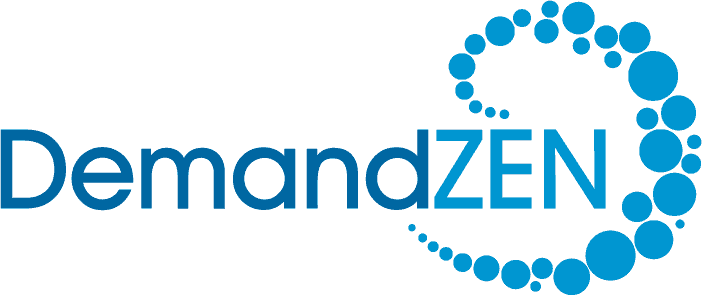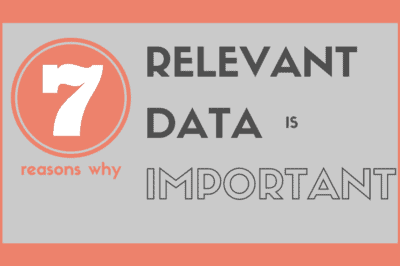The beginner’s guide to Google PPC management

If you want to drive more traffic to your site quicker, just add Google Adwords to your box of inbound tools. When done as part of your inbound strategy, PPC campaigns can be effective lead generators.
Getting into PPC, however, isn’t always simple or easy and the topic can be a bit overwhelming at first. Fortunately for you, we’ve prepared this quick guide to Google PPC management. Just continue reading to find out the key things you must know before you get into PPC advertising.
What is PPC advertising? How does it work?
PPC is a type of paid internet marketing. It allows an advertiser to display an ad somewhere and only pay for the clicks the ad receives. That’s where the name “pay per click” comes from. However, over time the definition has expanded and now the term is used in a more encompassing way. Most PPC providers allow you to pay-per-view, per-engagement or one of many other new types of actions.
For the sake of keeping it simple, we’ll focus on the basics here. That’s where most of your results will come from. This means that we’ll focus on the core of Google’s PPC offering, and that is keyword-based PPC. While Google nowadays offers other options such as ads in videos, ads on “partner sites” (and more), you will want to get a good handle on the foundations before you go further.
Google’s PPC advertising service is called “AdWords”. It’s also the most popular PPC platform in the world. AdWords campaigns are extremely effective, provided you utilize good keywords and run quality ads. This is logical given Google’s high traffic volumes and click-through rates.
The PPC model of advertising works like an auction. When a keyword is entered by a user, advertisers can bid for ad placement in Google’s sponsored links. These are the links appearing at the top of the search results page. To run ads on Google, advertisers have to choose a budget that suits them and choose from the different bidding options.

In AdWords, paying more doesn’t mean your ad will get a more prominent place. Google uses a set of criteria to choose which ads will appear and in which order. This is an automated process known as ad auction.
Your ad placement is determined by your ad rank.
The ad rank is calculated based on your bid amount and quality score. The quality score is Google’s rating, based on your expected CTR, landing page experience and ad relevance.
AdWords is designed to reward bidders that create smart and well-targeted PPC campaigns. Advertisers with high-quality scores are charged less per ad click and get higher ad ranks.
How to manage your AdWords campaigns
There are many factors affecting the success of your campaigns. From your choice of ad platform, ad content and landing page quality to the time of day when the ad is running.
Keep in mind that Google PPC management is not a one-time task.
Your campaigns need constant management and tweaking to remain effective. Let’s look at some useful tips to ensure maximum return from your PPC campaigns.
Keywords are essential
AdWords campaigns revolve around keywords. This is logical since keywords determine your ad placement. The right keywords act as a link that helps connect searchers with your site. To maximize traffic to your site, you have to grow and update your keyword list regularly.
Research and choose keywords that are most likely to get ad clicks and bring visitors to your site.
Keep your keywords relevant to your offer. Start by collecting relevant keywords from the landing pages your ads lead to. This will help you achieve high click-through rates.
Keep your list comprehensive. Include broad keywords as well as specific keywords. Broad keywords include the more frequent searches. They tend to only have a general connection to your offer. Note that while broad keywords have high search volumes, due to their broadness, many will fail to be relevant for your business.
Specific keywords are more closely related to your product. Although less commonly searched for, they are exactly what the searcher is looking for. They are less competitive and hence cheaper.
Keep your list in a state of dynamic expansion. Conduct regular keyword research to see which keywords to keep and eliminate.

Target your ads
Ad targeting is a key element in your PPC campaigns. You’ve crafted an awesome ad using keywords relevant to your product. Now you need to show it to the right people, at the right time.
Keep your ads product-specific. Each ad should focus on a single product or service to increase relevance.
AdWords allows you to show ads to people in locations relevant to your business. You can target your ads by country, region or in proximity to a certain location.
You can also target your ads by device (cell phone, tablets, PC), OS or Wi-Fi networks.
Timing is crucial in ad targeting. Every business has profitability peaks based on different time periods. There may be specific days or times of day when your audience is online or when they’re more likely to engage.
Depending on your business model, it might have to do with the days when you can respond to customer requests. If you’re open for customers Monday to Friday, showing your ad on weekends isn’t money well spent
Create quality ad copy and landing pages
Since the goal of PPC is conversion, not just clicks, you must optimize your ad copy and landing pages to convert. If you lack a strong call to action or show a landing page with little value to the visitor, people will simply leave.
Creating a good PPC ad can be hard since you have to convey your message and fit your ad copy in a tiny space. Make sure the ad describes your offer concisely, given the character limit. Bonus tip: Always try to include your keyword in the ad text and headline. This will get you extra attention.
To see what your ideal customers respond to and to avoid wasting money on ads, test your ad copy frequently.
Create provocative CTAs that trigger ad clicks. Experiment with different CTAs to see what works best for conversion.
The purpose of the ad is to send visitors to your landing page. The purpose of the landing page is to convert them into leads or customers.
Make sure the keywords and phrases in your ad copy and landing page are consistent. In other words, don’t be misleading. Your landing page must deliver on what the ad promises.

Track all campaign elements
It’s important to plan your campaign strategy carefully. But with PPC campaigns, it’s just as important to make adjustments after they go live. You have to constantly analyze and adjust all campaign elements. This will improve your click-through-rates and quality score, which in turn will lower your cost per click.
Choose the metrics that best apply to you and track all campaign aspects from the start. This way you will be able to monitor your campaigns and evaluate their effectiveness.
By tracking how much you spend and get in return, you can see how cost-effective your campaigns are.
You can also see which keywords and ads perform best and which campaigns generate the most leads.
Your click-through rate is a key metric. It’s an indicator of how appealing and relevant your ads are. If people see your ad but aren’t compelled to click, you need to work on your ad copy.
Make sure to track your quality score as it affects your CPC and your ad placement. It’s determined by your click-through-rates, keyword relevance, landing page and ad copy quality. Your account performance history also plays a part.
However, a high CTR won’t mean much if none of the visitors are actually converting. Track your conversion rates to see how your landing pages are performing and what needs tweaking.
You don’t have to go at it alone
PPC isn’t simple or easy. It may look like it when you see an expert crafting a campaign. They go in and click around for a bit, and bam they’re doubling the traffic a company gets while tripling their product sales. Don’t let the end result fool you. It takes a bit of time to master this skill.
At first glance, it may seem prudent to manage your PPC campaigns in-house to cut costs. But this may prove wrong in the long run. In order to design and deploy effective PPC campaigns, you need a lot of knowledge and experience. You also need to do a lot of monitoring, testing, and continual refinements.

Unless you have considerable experience in this area, it’s best to outsource your PPC management to the experts. This is a surefire way to ensure maximum returns from all of your campaigns.
Effective lead generation is a must for any business. But cost-effectiveness must also be a priority. To win on both fronts, let us help you with your PPC campaigns. The PPC experts at DemandZEN are fully versed in all the intricacies of the PPC campaign design and management. And they are looking forward to hearing from you.
You Might Also Enjoy These Posts
Gamification Strategies: Badges in B2B Marketing
7 Reasons Why Relevant Data is Important to Your Organization
Welcome To DemandZEN
DemandZEN specializes in Account-Based Demand Generation and solving the challenges around finding, engaging and converting target accounts into real opportunities for B2B Technology and Services companies.


